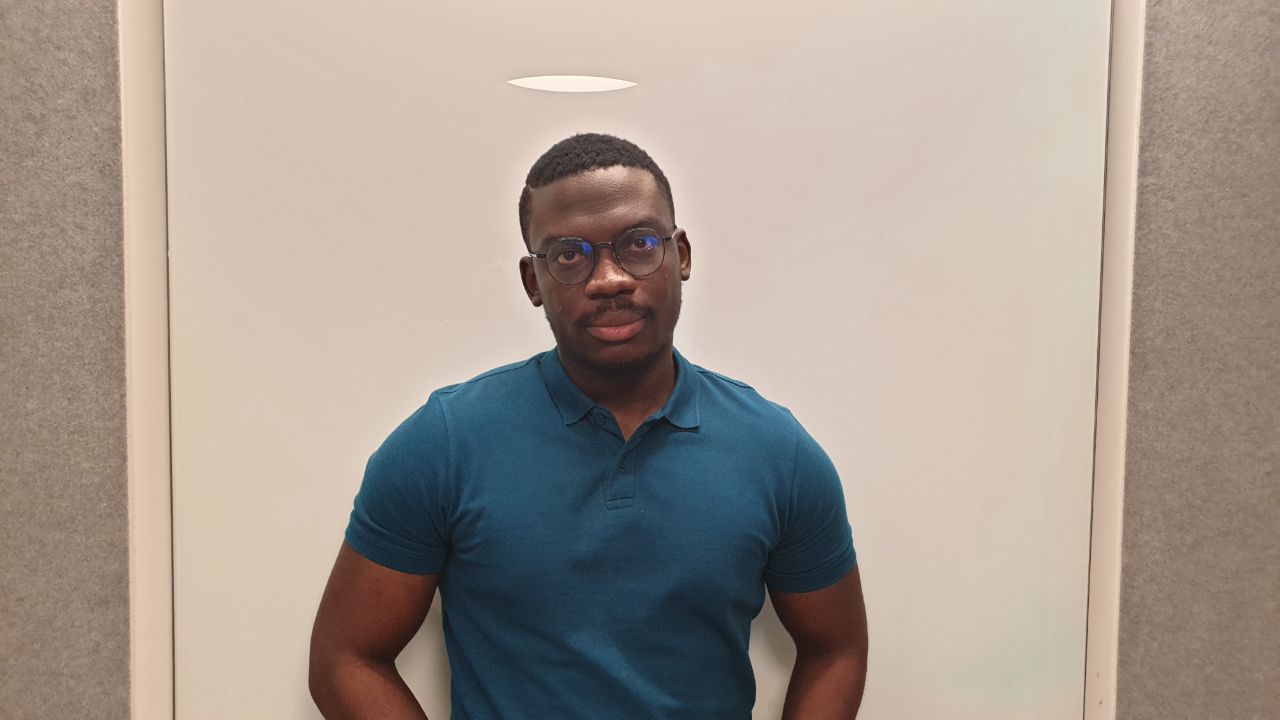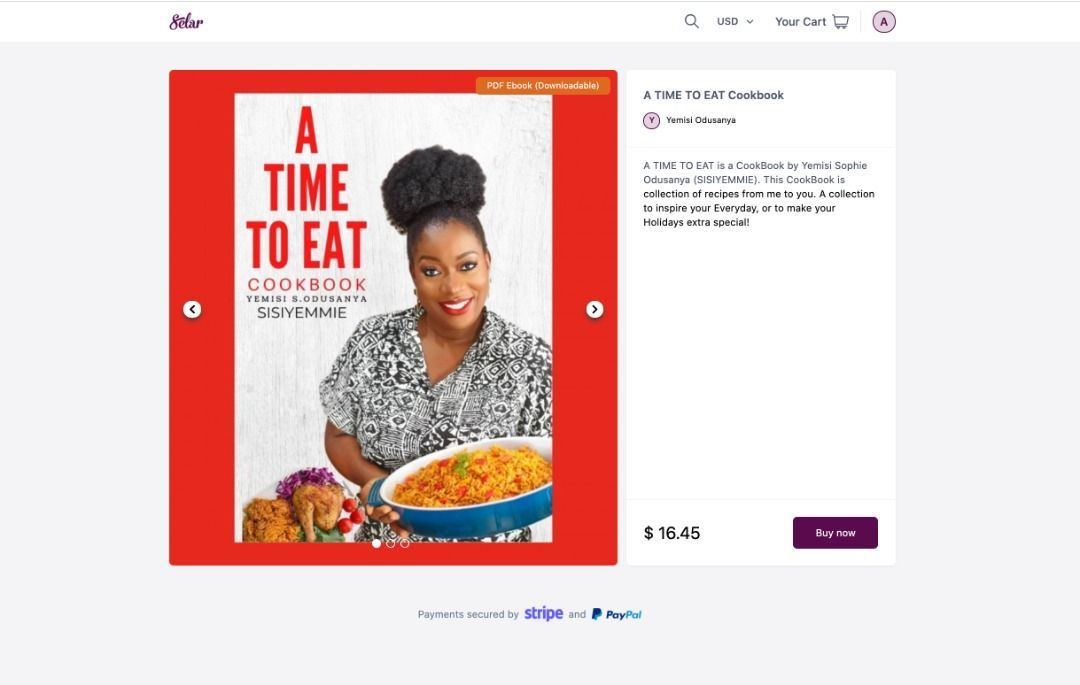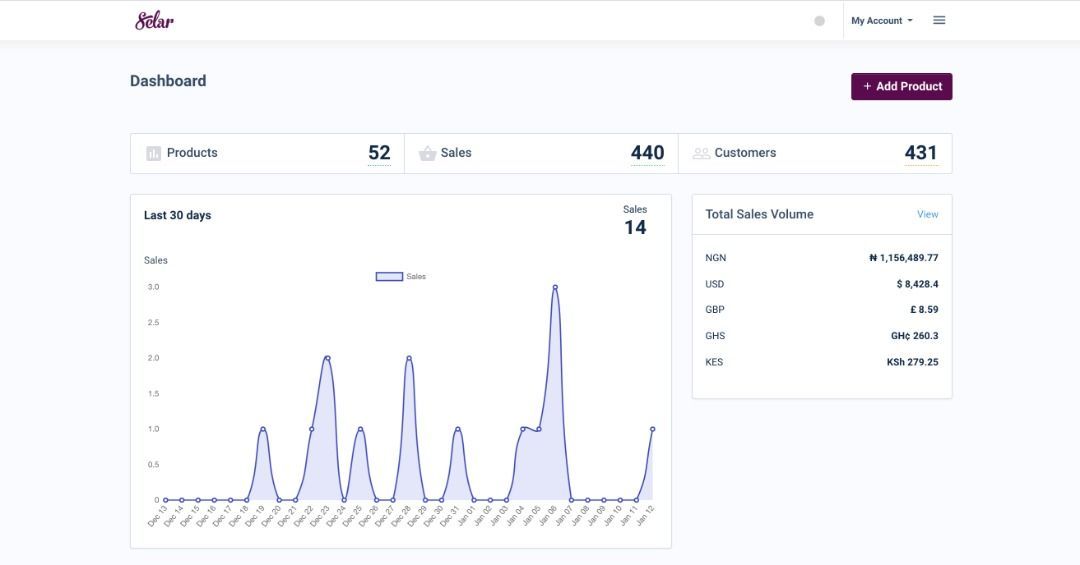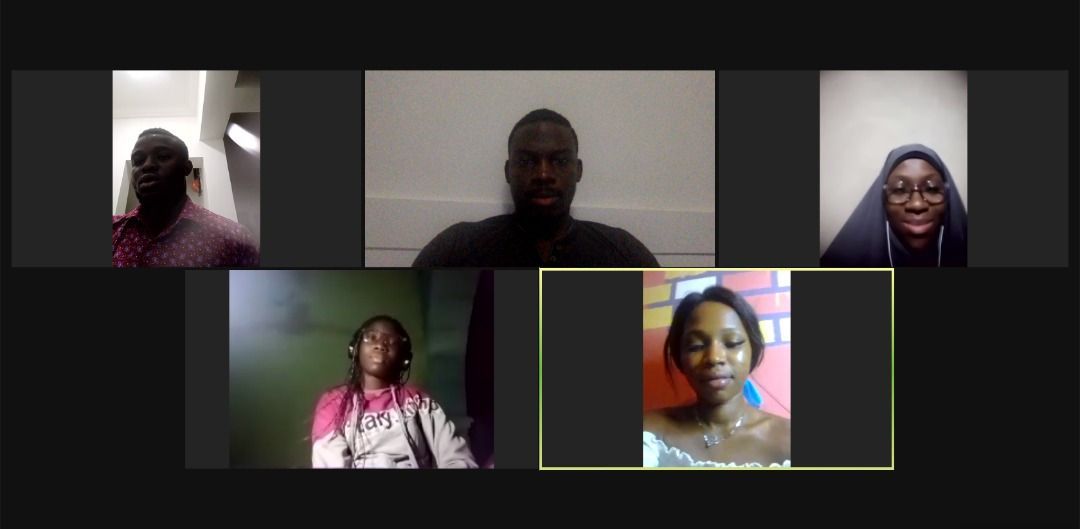Selar: From Tony Elumelu's TEF $10,000 grant to ₦100 million in revenue
At the heart of it, Selar is an e-commerce store builder that allows creators to sell digital products and services like; e-books, music, courses, and training, etc., across borders.

Selar is an ecommerce store builder for digital creators to sell their products and services across borders.
The Tony Elumelu Foundation (TEF) runs one of the most popular entrepreneurship-support programs in Sub-saharan Africa. Every year, the foundation gives grants of between $5,000 to $10,000 to young entrepreneurs across the region.
Since TEF’s launch in 2015, the programme has funded over 9,000 African entrepreneurs across 54 countries. Many of the funded entrepreneurs and their dreams slip into the unknown, beaten down by the unforgiving business environment in the region. Doing business in Africa is risky business, as many people already know. However, there are some who thrive, despite the challenges.
Douglas Kendyson, Selar founder and CEO, is one of those entrepreneurs. When he applied for the TEF grant in 2018, he was a starry-eyed software engineer & manager at Flutterwave. The chances of him getting in were slim, and he knew it. In fact, he didn’t get shortlisted when the list came out.

He had given up on the grant until Gesellschaft für Internationale Zusammenarbeit, a German developmental aid company, decided to sponsor 210 more entrepreneurs. That was how Douglas got his “big break”.
A $10,000 grant may not sound like much, but for this first-time founder looking to build something that revolutionises the creatives’ industry, it was a dream-saver.
What is Selar?
At the heart of it, Selar is an e-commerce store builder that allows creators to sell digital products and services like; e-books, music, courses, and training, etc., across borders.
When Douglas founded Selar in October 2016, he was a Customer Success Expert & Software Engineer at Paystack. His focus was to build a service where non-registered business owners can sell their products. Creators typically fall into that category. They have a lot of substance people want but no structure that helps them productise it.
With Selar, Douglas hopes to enable the passion economy in Africa. Creators should find it easy to monetize their knowledge and audience through digital products and services—that is what Selar champions.

The initial dream was to build a Gumroad for African creatives, where they could host and sell their content to local and foreign customers. However, it has morphed into a Shopify-like business model that handles the commerce process end-to-end.
Users on Selar can build a mini-e-commerce site complete with the offering, upsells, cross-sells, newsletter integrations, CRM, analytics, affiliate marketing, and, of course, a checkout page. All of this can be completed in just a few minutes. Douglas says He has seen users sign up and make their first sale in under 15 minutes.
To top it all, users can receive payments in at least six currencies - Naira, Dollars, Pounds, Cedis, Kenyan Shillings, Rands.
Selar’s journey so far
The growth at Selar is undeniable at the moment, but it wasn’t always so. Traction was slow in the first two years as Douglas, and his small team struggled to find product-market fit. It was between July and August 2017 that things would start to pick up. That was when the dream started to look real for Douglas.
Winning the TEF grant in 2018 was another dream-validating event for him. It was a sign that other people believed in the vision.
Initially, getting people to use Selar was difficult. The company would reach out to content creators to see if they could put their content on Selar. More often than not, they would get ignored.
Although he has worked almost single-handedly on the tech end of the business, Douglas also had to pull in a lot of the early weight on the marketing end. In 2020, he sent pitches to over 500 creators to get them to use the product.
At first, the disappointment from being ignored stung, but the more he sent the pitches, the less it hurt. It was simply a numbers game—the more people he reached out to, the likelier he could get someone to use the product. That was how Selar picked up steam with creators.

Interestingly, Douglas remarks, most of Selar’s users have come from direct referrals. Users who enjoy using the product recommend it to their friends who do the same after trying it.
So far, the company has acquired over 17,000 users. In 2020 alone, the company recorded over ₦100 million ($270,000) in transactions. That figure ensured that the company was cash-flow positive, going into 2021.
The lean startup
If there’s one thing that makes the Selar story remarkable, it is because its success has been achieved off the back of frugality and a keen sense of prioritisation. The company is a poster child for lean startups in Africa.
For the most part, Douglas has been the only constant in Selar. He has had several co-founders and co-workers in four years the startup has existed, but most of them have left to pursue other dreams. He holds no grudges, though. It is hard working at a startup. Until the company started to produce tangible results, he had harbored thoughts of closing shop too.
After receiving the TEF grant in 2018, Douglas hired two content marketers who helped with aggressive marketing on Instagram. He was still looking for product-market fit and didn’t want to spend too much money on ads. The goal was to get as many people as possible to try the product and improve on it as time goes on
For Selar, the priority has always been listening to its users and giving them all the tools they need to make more sales, and that has led to most of its top features::
- Affiliate marketing
- Read online only PDFs (to prevent piracy)
- Selar Hosted Courses (their latest launch for course streaming)
- Deeper integrations with third parties and many more
Most of these features have been built by Douglas. Considering he's going full time now, he's just hired his first engineer. Right now, the company has five team members, including a recently-hired software engineer and Sales Lead, to help with their next phase of growth.

The company is so lean that it didn’t exhaust its 2018 TEF grant until the late last year, 2020. It plans on keeping things lean for as long as possible.
That said, Selar didn’t get here just because of the team’s frugality. The startup runs an asset-light model so overhead costs are naturally low. The startup has also been quite fortunate on the infrastructural costs it has. It has gotten gifts like AWS credits from colleagues, mentors, and friends which have meant no hosting fees.
What we should expect from Selar
Selar’s success has flown under the radar so far. Douglas prefers to build and let the product speak. So far, it has done that, and he wants to take it even further.
Although the $10,000 grant is all the outside funding that Selar has received so far, the company is in a comfortable place. It wants to expand its service to more countries and onboard more creatives. After achieving so much with so little, Selar is ready to accelerate its growth.
New features are in the pipeline. The company has recently launched a subscription program that allows merchants to host video courses directly on the Selar platform. Creators will soon be able to use their own domain on Selar with full customisation.
Like a butterfly emerging from its cocoon, Selar has endured many years of quiet growth. Now, the startup is ready to make the world a beautiful place, one creative at a time.






